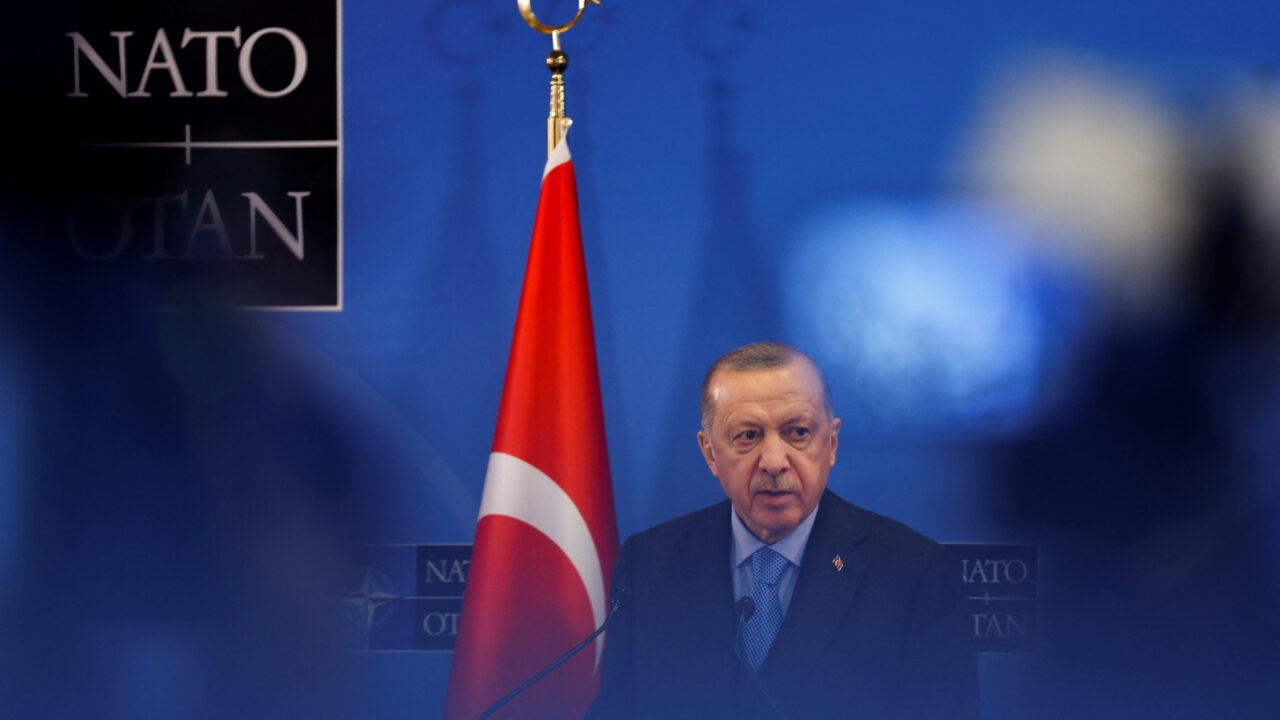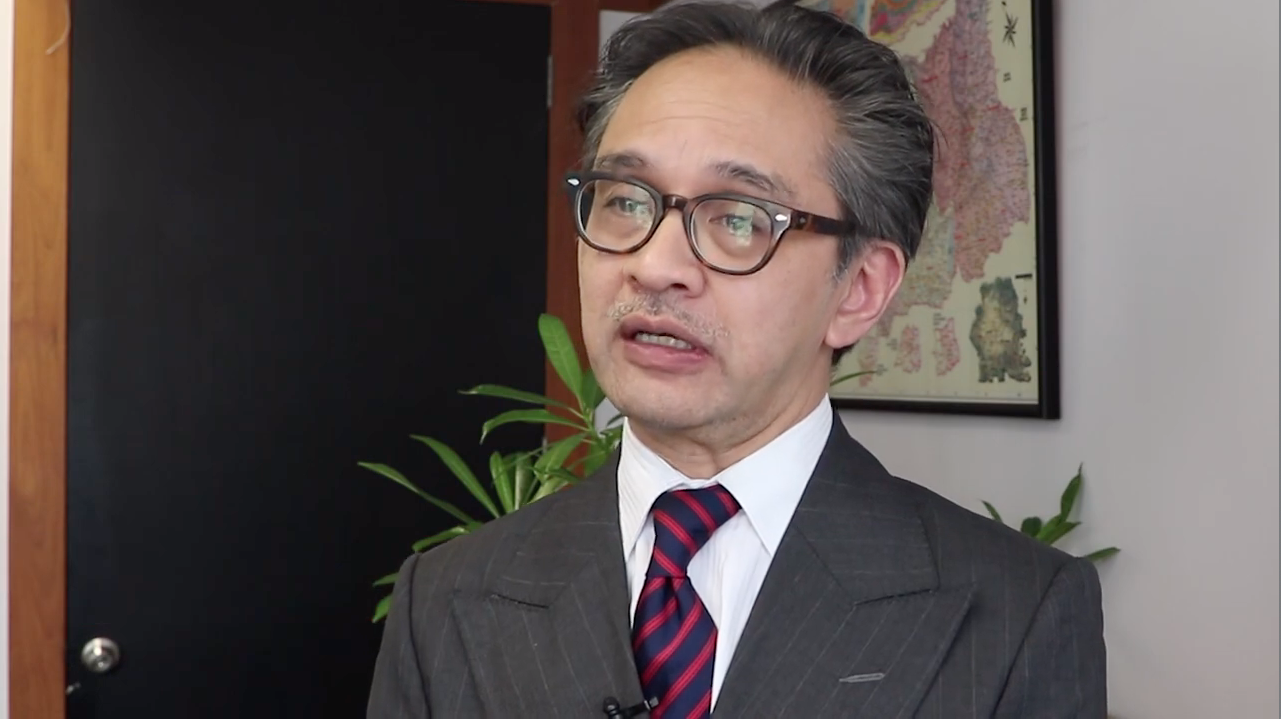Turkey used NATO enlargement to advance its national goals. When Finland and Sweden applied for NATO membership in 2022, most alliance members supported rapid approval. Turkey delayed both applications. It used its veto power to extract political and security concessions, including counterterrorism commitments and weapons deals. The episode showed how NATO operates through consensus, and how individual states can use that rule to pursue unrelated demands.
After Russia invaded Ukraine in 2022, Finland and Sweden moved quickly to abandon their long-standing neutrality. Both countries submitted applications to NATO in May of that year. Their entry required unanimous approval from all existing members. Most countries ratified the applications within months. Turkey and Hungary held back. Turkey cited concerns about support for Kurdish groups and arms restrictions imposed after its operations in Syria. Turkish officials claimed Sweden, in particular, failed to prevent protests by groups linked to the PKK, which Turkey classifies as a terrorist organization.
The Turkish government presented a list of demands. It wanted Finland and Sweden to take legal steps against individuals and groups it viewed as a threat. It also asked for an end to arms embargoes and more cooperation on intelligence sharing. Sweden and Finland responded by amending laws related to terrorism and by expanding security cooperation. They also clarified their policies on arms exports, especially to NATO members.
Finland’s application moved faster. It met most of Turkey’s conditions early. It also kept a lower profile on issues sensitive to Ankara. In March 2023, Turkey approved Finland’s membership. Sweden’s bid remained delayed. Turkish officials said Sweden had not done enough. Meanwhile, elections in Turkey created more political pressure. President Erdoğan used the issue to show voters that he could push back against the West and defend Turkish interests. Sweden became a symbol of Western double standards in Turkish political discourse.
The delay affected NATO planning. Officials expected both countries to join together to reinforce the alliance’s northern flank. Finland shares a long border with Russia. Sweden adds naval and air power in the Baltic region. The delay created uncertainty about defense coordination and weakened the appearance of unity. Some allies pushed Turkey to move faster. U.S. and European officials held multiple rounds of talks with Turkish counterparts. These talks included both public statements and quiet negotiations.
The United States played a key role in resolving the deadlock. Turkey had long requested upgrades to its fleet of F-16 fighter jets. Congress had blocked the sale, citing concerns over human rights and Turkey’s drift from NATO norms. In 2023 and early 2024, U.S. officials signaled that movement on the F-16 deal would follow progress on Sweden’s application. This connection was never made official, but both sides understood the link.
In July 2023, during the NATO summit in Vilnius, Turkey signaled support for Sweden’s bid. The formal ratification took longer. Turkey’s parliament approved Sweden’s membership in early 2024. Hungary followed soon after. The U.S. then advanced the F-16 deal, including 40 new aircraft and upgrades for existing ones. Turkish officials presented the outcome as a diplomatic success. Sweden joined NATO. Turkey received defense equipment and political recognition.
The episode showed how Turkey uses alliance processes to shape its external relationships. It did not object to NATO enlargement in principle. It used the opportunity to address what it saw as neglect of its security concerns. Western states often criticize Turkey’s domestic policies, including its approach to opposition parties, the media, and Kurdish rights. Turkey uses NATO to push back. It argues that security cooperation should include respect for its fight against armed groups.
This approach also affects other areas of diplomacy. Turkey blocked earlier NATO statements that mentioned support for Greece. It delayed planning documents until its demands were met. It linked unrelated issues to secure better outcomes. This conditional diplomacy reflects how Turkey sees its role. It is not a passive member of Western institutions. It seeks equal treatment and uses every available tool to achieve it.
There are risks to this approach. Delays in NATO action create friction. They reduce trust among allies and encourage external actors to exploit gaps. Russia monitored the situation and used it in its own messaging. It claimed that NATO was divided. It pointed to Sweden’s delay as proof. These arguments did not stop enlargement, but they showed the cost of drawn-out negotiations.
Some European states now call for changes to how NATO makes decisions. They propose limiting the use of vetoes in urgent cases. Others argue this would weaken alliance cohesion. The rule of unanimity forces members to talk through disagreements. Removing that rule could increase pressure on smaller states. Turkey opposes any move to reduce national control within NATO.
The enlargement process also shaped Sweden’s foreign policy. Before joining NATO, Sweden maintained strong neutrality. That policy included limits on arms exports and a focus on human rights. During the application process, it made adjustments to meet Turkish conditions. It passed new laws and increased security cooperation. These changes show how alliance membership affects national policy. Countries must weigh their domestic principles against alliance goals.
For Turkey, the outcome was mixed. It showed it could shape NATO decisions. It secured progress on defense sales. It received attention to its security concerns. But it also faced criticism. The delay strained relations with some allies. It raised questions about Turkey’s long-term alignment. It showed how alliances include both cooperation and competition.
This episode also revealed how the balance of power inside NATO is changing. Countries on the eastern and southern flanks, including Poland, the Baltic states, and Turkey, now play larger roles. They face direct threats or handle key regional risks. Their views carry more weight. Enlargement gave them more influence over NATO’s agenda. Turkey used that influence to push for national gains.
The future of NATO will include more of this type of diplomacy. As the alliance grows, more states will have more interests to protect. Consensus requires compromise. Turkey’s actions during this process set a precedent. Other countries may follow the same path. That will test the alliance’s ability to stay united while respecting each member’s position.
Turkey used NATO enlargement to pursue its own interests. It delayed the process to gain security and defense concessions. It showed how alliances work through negotiation, not assumption. This made the process slower but more transparent. It also made clear that no member state, large or small, accepts outcomes that ignore its own risks.



